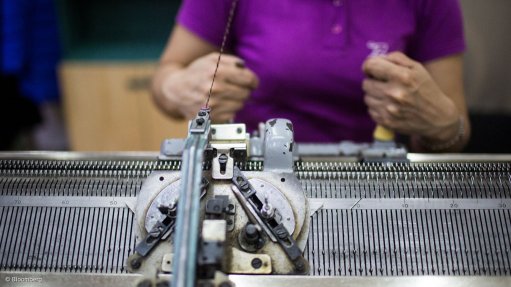
MANUAL SACRIFICE The fourth industrial revolution will disrupt labour practices in the manufacturing industry
Photo by: Bloomberg
Although the fourth industrial revolution is set to disrupt almost every industry globally by transforming production, management systems and governance, Department of Science and Technology advanced manufacturing technologies acting director Sechaba Tsubella says this revolution brings improved efficiency for the manufacturing industry, owing to technological innovations, which will result in exponential productivity increases.
“The main opportunity is that the revolution has the potential to raise income levels, both locally and internationally. “This will lead to an improved quality of life and economic growth. The revolution also has the potential to materialise greater economic integration and linkages – an especially important opportunity for Africa.”
Although the effects of this revolution have not yet materialised, Tsubella emphasises the importance of South Africa not being left behind. He says that certain sectors of the manufacturing industry continue to be characterised by inefficiency, use of obsolete technologies, lower productivity and “a chronic inability to adapt and respond to changes in the environment”
.He goes on to explain that previously unrelated fields can now be fused together through the wave of technological breakthroughs brought on by the revolution. This extends to artificial intelligence, including self-driving cars, drones, virtual offices and high-speed computing.
Moreover, he explains that rationalisation of communication systems, logistics and global supply chains will diminish trade costs, opening up new markets and driving growth.
Although the revolution will bring these positive changes, Tsubella says the biggest challenge that it will bring is labour disruption, which could lead to inequalities.
“This is because those who are better placed to gain from the revolution, such as those in First World countries, may experience higher excesses than those who may be left behind. “The displacement of workers as a result of automation, though unquantified, remains a threat, particularly in Third World and emerging economies, making this a realistic threat for Africa.”
He adds that the introduction of new technologies creates new production systems, which will improve manufacturing efficiency, but disrupt traditional value chains.
“Innovative competition, in the form of access to global platforms for research and development and customer behaviour analytics, as well as improving the quality, rate or price at which a product is manufactured and delivered into the market, will also experience disruption,” Tsubella concludes.